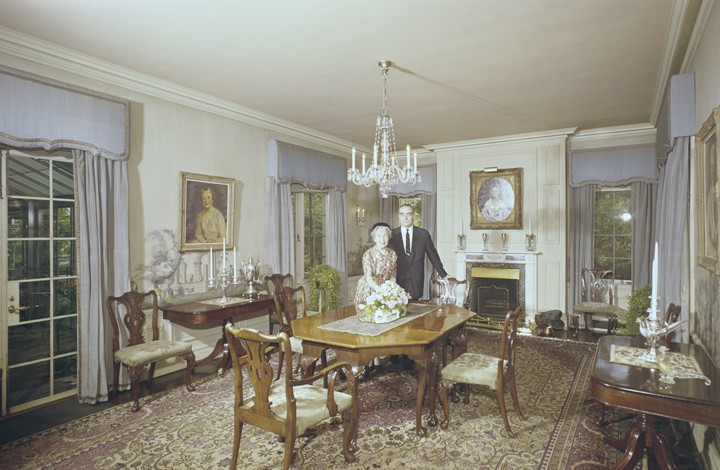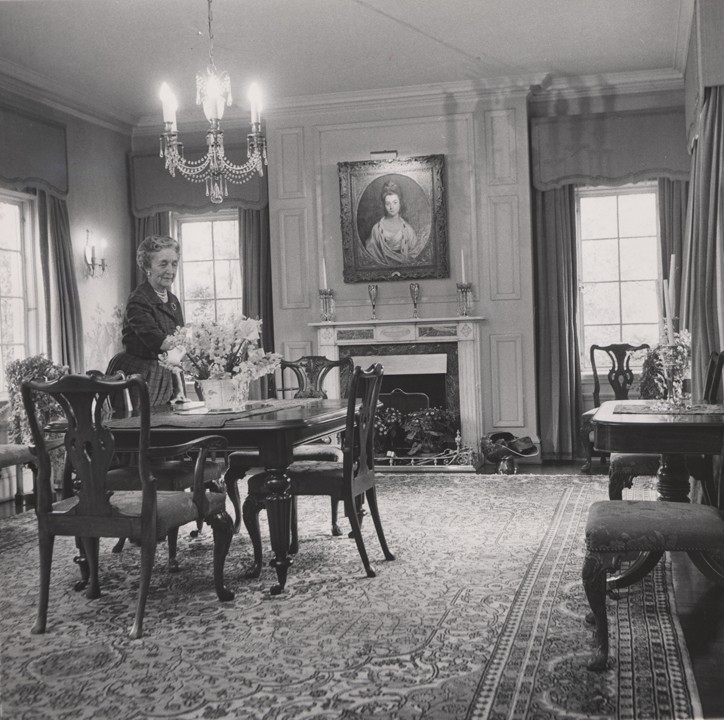History
Dr. George Henry Alexander Clowes, his wife Edith Whitehill Clowes and their two sons, Allen W. Clowes and Dr. George H.A. Clowes, Jr., incorporated The Clowes Fund in Indianapolis, Indiana, in 1952, with a primary goal to perpetuate the care and public display of the Clowes Collection of art and a broad mandate to support education and the literary, fine and performing arts. Social services soon became a focus for support.
During their lifetimes, Dr. and Mrs. Clowes amassed an extensive art collection, primarily of paintings by European Old Masters, which hung in their Indianapolis home, Westerley. After the death of Dr. Clowes in 1958, the collection became property of the foundation. In 1971, the Fund moved the collection to the Clowes Pavilion, a newly built wing of the Indianapolis Museum of Art (IMA), on indefinite loan. In 1999, the Fund board voted to donate the entire collection to the museum over a period of years. The transfer was completed in 2023.
A rare combination of scientist and entrepreneur, the senior Dr. Clowes was director of research at Eli Lilly and Company. When Dr. Frederick G. Banting of the University of Toronto and his associate Charles E. Best discovered insulin in 1921, Dr. Clowes mobilized Lilly resources to mass produce and market a treatment that was to save the lives of millions of diabetics. This breakthrough for medicine, manufacturing and humanity led to the emergence of Lilly as a pharmaceutical giant. This growth, in turn, contributed to an accumulation of wealth that gave rise to the Fund, the art collection and other philanthropic endeavors. Mrs. Clowes was actively involved in a variety of educational, cultural and social service interests in the community; she was a co-founder of the Orchard School and Planned Parenthood. Their story is told in The Doc and the Duchess, The Life and Legacy of George H.A. Clowes, written by Dr. Alexander Whitehill Clowes. The book is available through the publisher, Indiana University Press, and Amazon; proceeds benefit the Fund’s grantmaking program.
Although none of the founding quartet survives, the Fund is governed by Clowes family representatives from the third and fourth generations, and four additional representatives round out the board with their civic and professional knowledge.
The Clowes Fund began the new millennium with its first professional executive and a new office in Indianapolis. In 2001, the board and staff created a values and mission statement and provided comprehensive guidelines for grantseekers. In 2003, the Fund established its two-step application process and added services for immigrants and refugees and workforce development to its fields of interest. Later, music education became a focus in Seattle. The Fund paid its last Seattle grants in 2021 after awarding 140 grants totaling more than $8.7 million over the course of 40 years.
The foundation developed its plan for the next decade and marked a new era by hiring its first New England-based program officer in 2013. Led by a Futures Task Force appointed in 2018, the board affirmed its commitment to grantmaking in Indiana and New England for at least the next 10 years and developed a succession plan when long-time Executive Director Beth Casselman announced her intention to retire in 2021.
The following years brought considerable local, national and global challenges. In 2020, the board responded to the COVID-19 pandemic by spending an additional 5% through a $3.2 million draw from the corpus of the Fund’s endowment to support grantmaking in 2020 and in 2021. They also supported the movement for racial equity through grants to the Central Indiana Racial Equity Fund and the New Commonwealth Racial Equity and Social Justice Fund in Boston.
In summer 2021, the board tasked Executive Director Megan Reilly with developing an approach to grantmaking that reduces the time spent on grant applications and reporting, and amplifies the relationships that are central to the Fund’s work. The new approach made multi-year operating grants the norm, rather than an exception. The board and staff have also welcomed Gen V of the Clowes family to engage in the joy and value of family philanthropy.













